In Traditional Chinese Medicine (TCM), diagnosis typically begins with identifying deficiencies and excesses, followed by the four diagnostic methods: observation, listening, inquiry, and pulse-taking, to distinguish between Yin deficiency (Yin xu), Yang deficiency (Yang xu), Qi deficiency (Qi xu), and Blood deficiency (Xue xu). Each type of deficiency affects different organs and presents unique symptoms. To understand where the problem lies, one must rely on syndrome differentiation and treatment.

To summarize the differences between Yin deficiency, Yang deficiency, Qi deficiency, and Blood deficiency in one sentence: Yin deficiency leads to internal heat; Yang deficiency causes sensitivity to cold; Blood deficiency results in dryness; Qi deficiency manifests as weakness.
The prevalence of internal medicine diseases in modern society is closely related to our physical constitution. It can be said that 80% of patients with internal diseases exhibit some form of deficiency. Today, we will discuss this in detail.
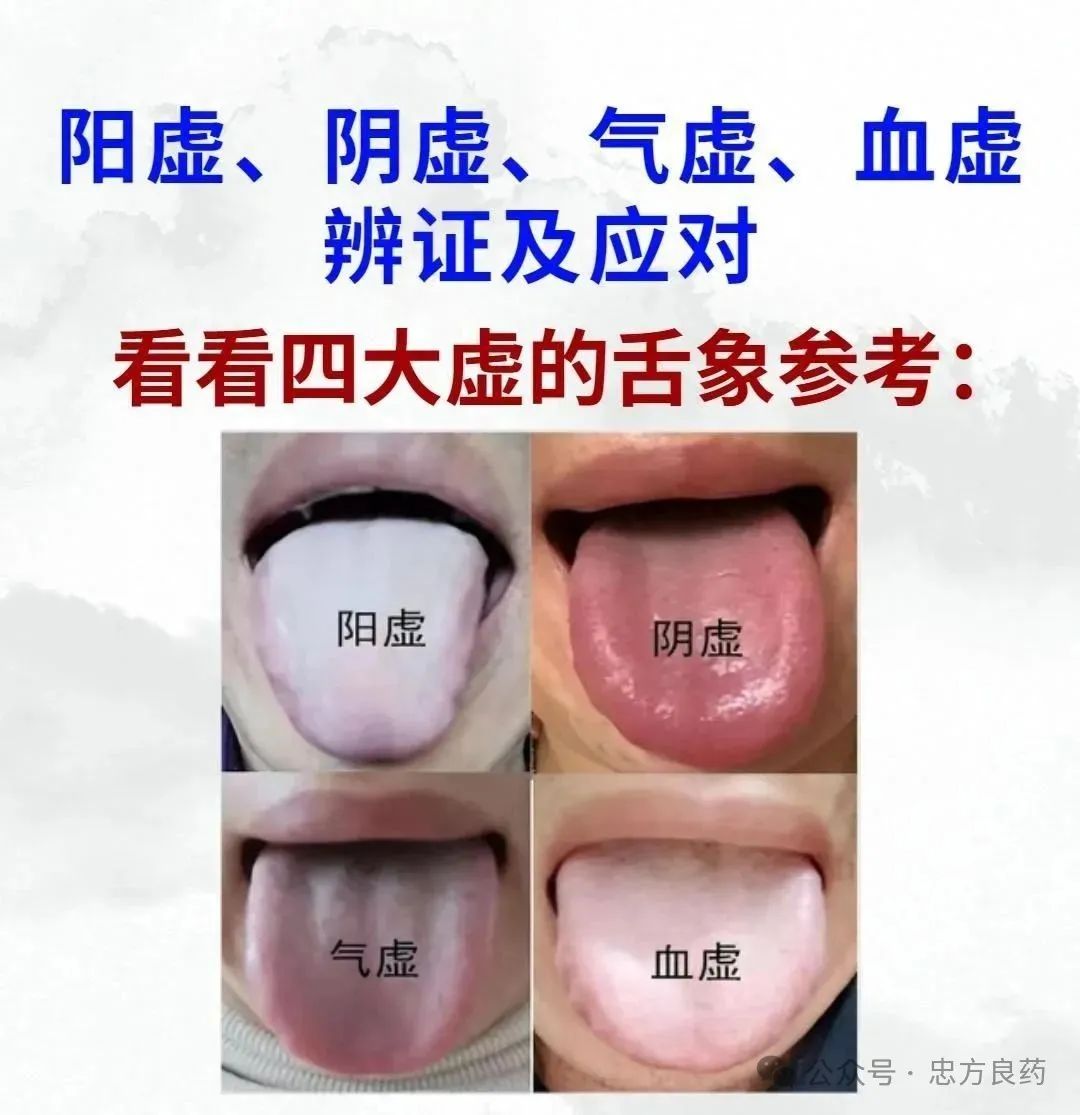
01 Yin Deficiency Constitution: Yin deficiency corresponds to insufficient fluids and essence, leading to dryness and heat.
Coating: Red tongue with thin or peeled coating.
Common symptoms include dry lips, dry eyes, dry throat, dry skin, brittle hair, and persistent thirst despite drinking plenty of water, often craving cold drinks. Patients may feel irritable, have difficulty sleeping, wake frequently, experience vivid dreams, and may even have night sweats. These are manifestations of internal heat due to Yin deficiency, not excess heat!
In TCM, Yin deficiency refers to a state where the body’s Yin fluids are insufficient to nourish and restrain Yang, leading to a series of problems.
Here’s a simple method to nourish Yin and replenish fluids: Cook japonica rice (粳米) in water. Use an appropriate amount of japonica rice and water, bring to a boil, then simmer on low heat for 20-30 minutes, and drink only the broth.
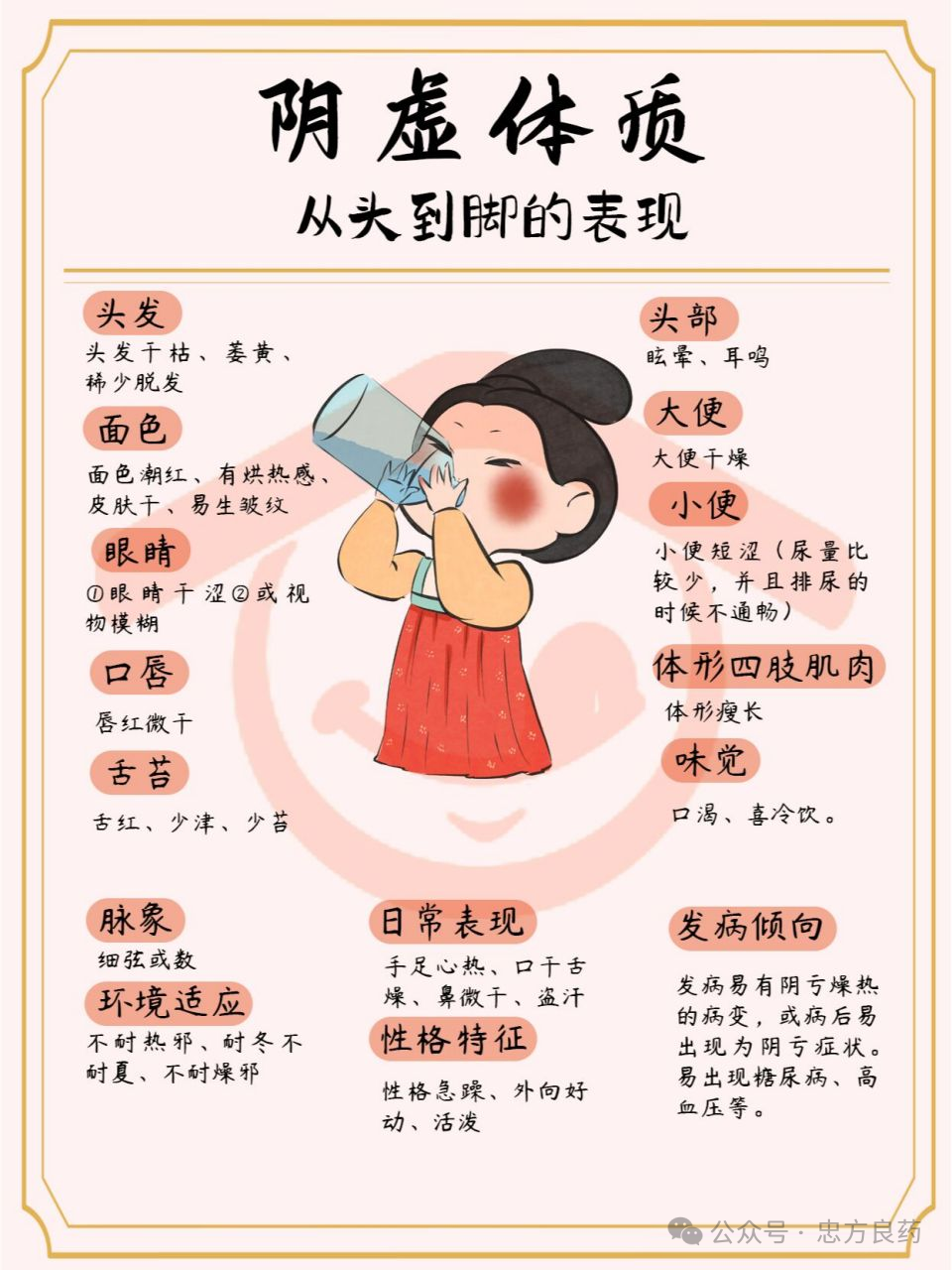
02 Yang Deficiency Constitution: Yang deficiency corresponds to insufficient Yang energy, leading to a feeling of cold.
Coating: Fat tongue with white, slippery coating.
Yang deficiency indicates a lack of Yang energy in the body, commonly referred to as “insufficient fire power.” It is a further development of Qi deficiency, representing a state of reduced or declining metabolic heat.
Symptoms of Yang deficiency are milder in summer and more pronounced in winter, including sensitivity to cold, cold hands and feet, lack of warmth, tastelessness in food, and a lack of thirst even after long periods without water. Patients prefer warm foods and drinks, and consuming cold foods can lead to abdominal pain and diarrhea. Urine may be light in color but in large amounts, and patients often feel fatigued.
It is advisable to choose foods that warm and tonify the Spleen Yang and Kidney Yang. Avoid raw, cold, bitter, and greasy foods, even in summer.
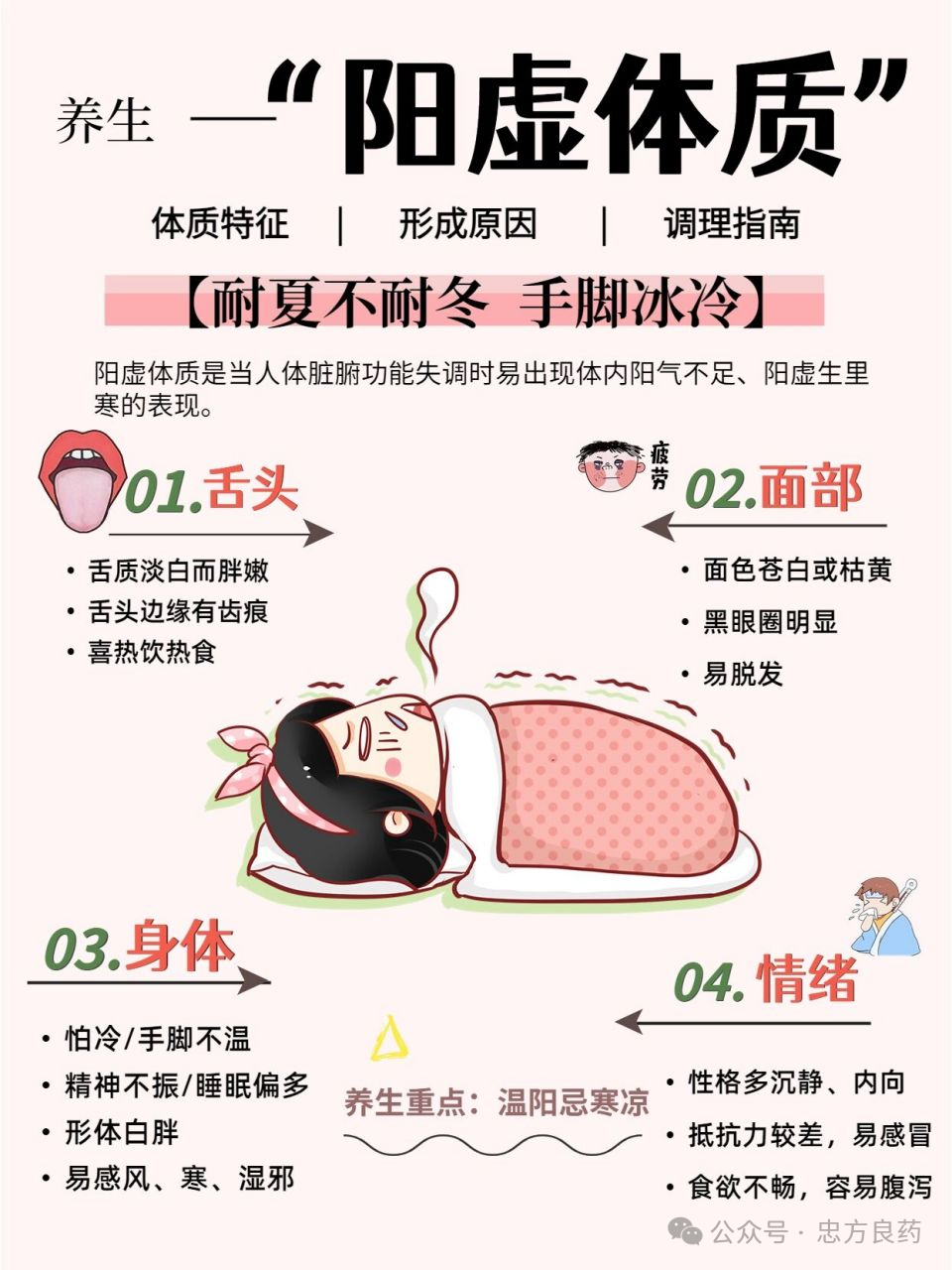
03 Qi Deficiency Constitution: Qi deficiency is akin to insufficient fuel in the body, leading to a lack of energy.
Coating: Enlarged tongue with tooth marks on the sides and thick, greasy coating.
The Spleen governs the distribution of body fluids; when Qi is deficient, there may be some dampness that cannot be expelled, leading to a swollen tongue and tooth marks from pressure against the teeth.
Individuals with Qi deficiency often speak little, feel dizzy easily, are unsuitable for strenuous exercise, and frequently feel fatigued despite little activity. They may experience shortness of breath and a low voice, and tend to sweat easily (spontaneous sweating).
Some patients may become breathless after climbing a few flights of stairs, feel excessively sweaty after minimal exertion, and struggle to maintain focus during work or study, often feeling drowsy and fatigued.
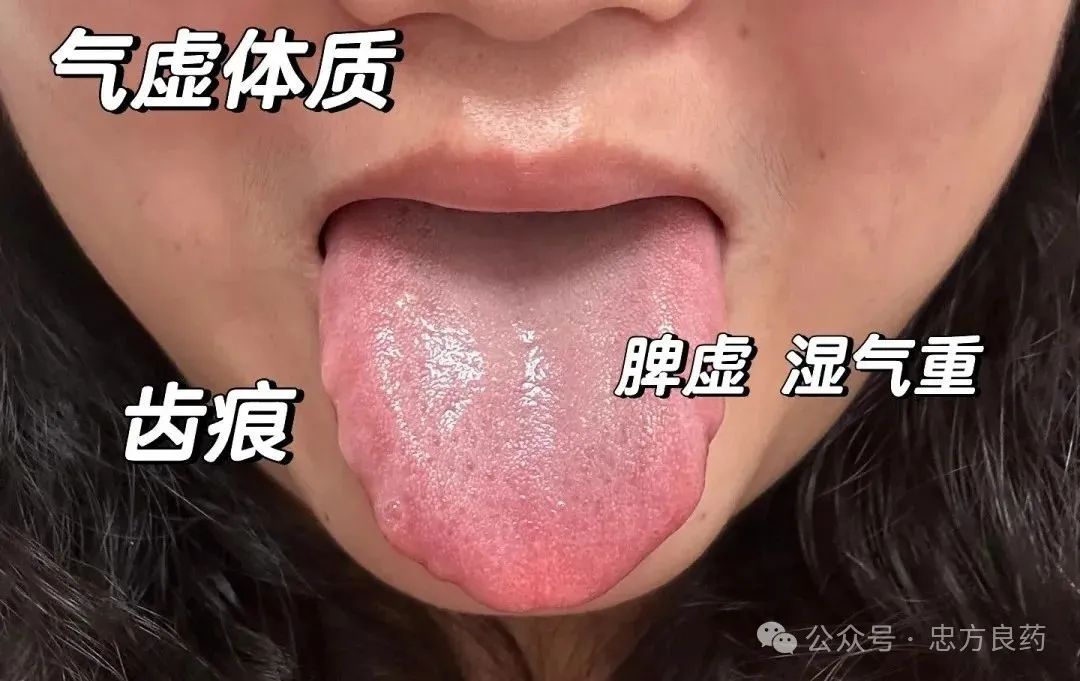
For Qi deficiency, drinking Astragalus (黄芪) tea is beneficial, and adding Chinese yam (山药) and red dates (红枣) enhances the effect. For heart Qi deficiency, Astragalus and Ginseng (人参) can be used, and for those prone to heat, adding Prince Ginseng (太子参) is advisable.
04 Blood Deficiency Constitution: Blood deficiency indicates insufficient nourishment in the body, leading to dryness and malnutrition.
Coating: Pale tongue with a white coating, varying in thickness.
Facial complexion may appear pale or dark yellow. Blood deficiency can cause a yellowish or pale complexion, pale lips, blurred vision, numbness in the limbs, dry skin, brittle hair, frequent dizziness, insomnia, and brittle nails. In women, it may manifest as scanty menstruation and prolonged menstrual cycles.
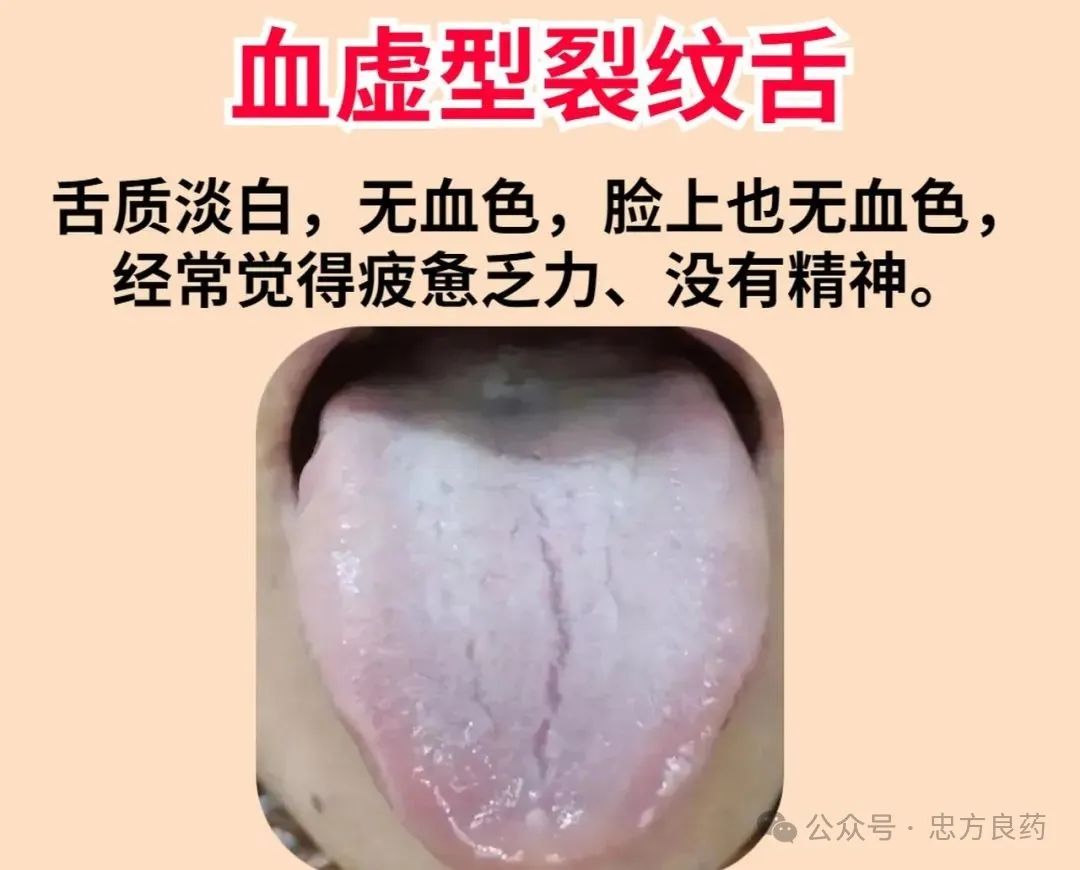
Individuals with Blood deficiency are extremely sensitive to changes in external temperature. When the temperature rises, they feel hot; when it drops, they feel cold. This is a manifestation of blood not adequately nourishing the limbs.
Moreover, if the state of blood deficiency persists for a long time, it can lead to stagnation and the formation of blood stasis. Therefore, when caring for the body, it is generally necessary to nourish the blood and resolve stasis simultaneously.
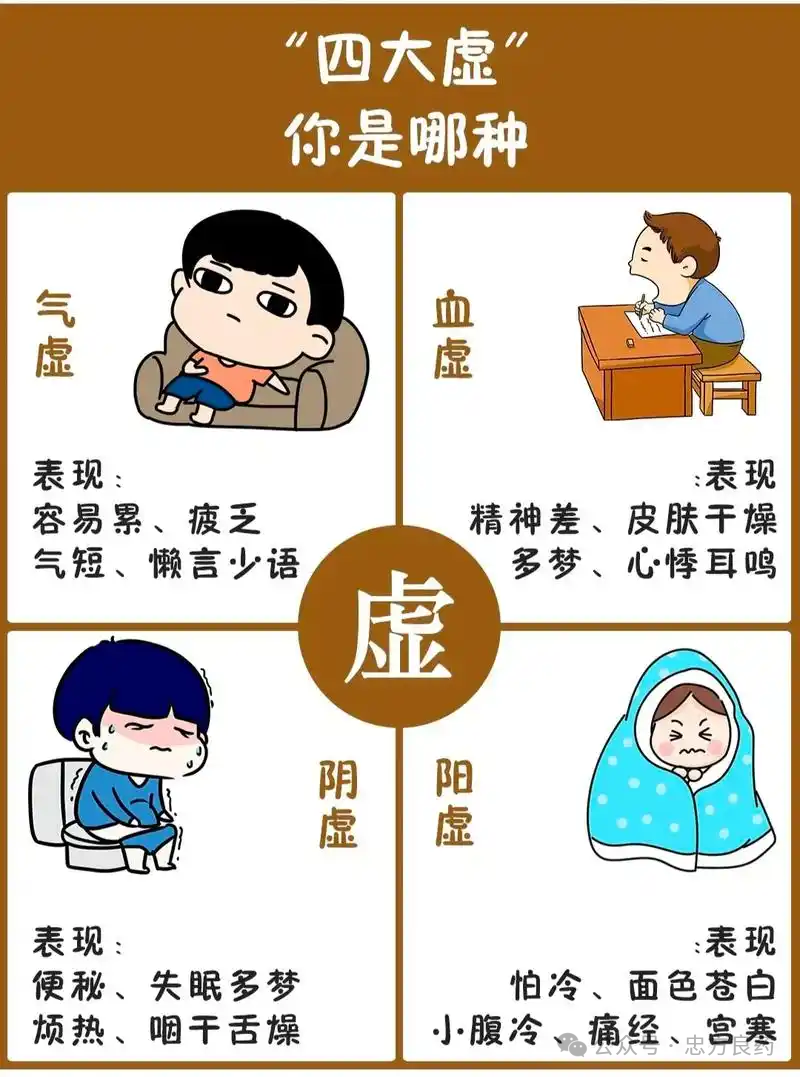
If you or someone around you exhibits the symptoms of these deficiencies, do not take them lightly. These deficiencies can affect quality of life and, if accumulated over time, may lead to more serious health issues.
Please follow the public account below:



